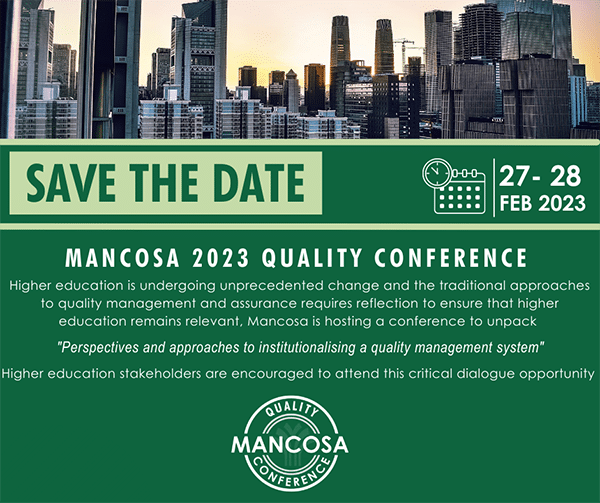What is Supply Chain Management? A Beginner’s Guide
Supply chain management (SCM) is the backbone of modern business operations, ensuring that goods and services move efficiently from suppliers to consumers. Whether you’re ordering a product online, managing a warehouse, or sourcing raw materials for production, SCM plays a vital role.

Covered in this article
- Why is Supply Chain Management Important?
- Key Components of Supply Chain Management
- Careers in Supply Chain Management
- How to Start a Career in Supply Chain Management
- Is a Higher Certificate in Supply Chain Management Right for You?
- Take the Next Step
- FAQs
Why is Supply Chain Management Important?
In today’s global economy, companies depend on supply chain management to streamline operations, reduce costs, and improve customer satisfaction. Here’s why SCM is crucial:
- Efficiency: Ensures timely production and delivery of goods.
- Cost Reduction: Helps businesses save on logistics, inventory, and procurement costs.
- Customer Satisfaction: Ensures products are available when and where customers need them.
- Risk Management: Identifies and mitigates supply chain disruptions.
- Sustainability: Encourages eco-friendly sourcing and distribution practices.
From e-commerce giants like Amazon to local retailers, SCM is at the heart of smooth business operations.
Key Components of Supply Chain Management
Supply chain management involves several key components that work together to create a seamless flow of goods and services. Here are the five main pillars:
1. Planning
Before a product reaches customers, businesses must plan their supply chain activities. This includes demand forecasting, inventory management, and production scheduling.
2. Sourcing & Procurement
This step involves selecting reliable suppliers, negotiating contracts, and ensuring a steady flow of raw materials or finished products.
3. Manufacturing & Production
Companies must manage production efficiently to meet customer demand while minimising costs. This includes quality control, assembly, and packaging.
4. Logistics & Distribution
Goods must be transported from manufacturers to warehouses, retailers, or directly to customers. Logistics includes transportation, warehousing, and inventory tracking.
5. Returns & Reverse Logistics
Handling product returns, repairs, and recycling ensures sustainability and maintains customer satisfaction.
Careers in Supply Chain Management
SCM offers diverse career opportunities across various industries, from retail and manufacturing to healthcare and technology. Some common roles include:
- Supply Chain Manager – Oversees the entire supply chain to optimise efficiency.
- Procurement Specialist – Sources and negotiates with suppliers.
- Logistics Manager – Manages transportation and distribution of goods.
- Inventory Planner – Ensures the right products are stocked at the right time.
- Operations Analyst – Uses data to improve supply chain processes.
With the rapid growth of global trade and e-commerce, demand for skilled supply chain professionals is rising.
How to Start a Career in Supply Chain Management
If you’re interested in SCM but don’t know where to start, consider these steps:
1. Get Educated
A qualification in SCM provides the foundational knowledge needed to succeed in the industry. MANCOSA’s Higher Certificate in Supply Chain Management is an excellent starting point for aspiring professionals.
2. Gain Practical Experience
Internships, part-time jobs, or entry-level roles in logistics, procurement, or warehouse management can provide valuable industry experience.
3. Develop Key Skills
SCM professionals need strong analytical, problem-solving, and communication skills. Learning about supply chain software and data analytics can also be beneficial.
4. Stay Updated on Industry Trends
The SCM field is constantly evolving with advancements in technology, automation, and sustainability. Following industry news and trends will keep you competitive.
Is a Higher Certificate in Supply Chain Management Right for You?
MANCOSA’s Higher Certificate in Supply Chain Management is designed for individuals who want to break into the industry or advance their careers. The programme covers essential topics, including:
- Introduction to Supply Chain Management
- Logistics and Material Handling
- Purchasing and Operations Management
- Basic Economics and Finance
This fully online programme allows you to study at your own pace while gaining practical skills that can be applied immediately in the workplace.
Take the Next Step
Supply chain management is a dynamic and rewarding field with growing career opportunities. If you’re looking to build a future in SCM, MANCOSA’s Higher Certificate in Supply Chain Management is your gateway to success.
Frequently Asked Questions (FAQs)
1. What is supply chain management?
Supply chain management (SCM) is the coordination of sourcing, production, logistics, and distribution to ensure efficient product delivery.
2. Why is supply chain management important?
SCM helps businesses reduce costs, improve efficiency, enhance customer satisfaction, and manage risks in global supply networks.
3. What careers can I pursue in supply chain management?
Common roles include supply chain manager, logistics coordinator, procurement specialist, inventory planner, and operations analyst.
4. How do I start a career in supply chain management?
Begin with an SCM qualification like MANCOSA’s Higher Certificate in Supply Chain Management, gain experience, and develop key industry skills.
5. Is an online SCM qualification recognised by employers?
Yes! MANCOSA’s online qualifications are fully accredited and respected across industries, offering flexibility without compromising quality.
6. What skills do I need for a career in SCM?
Key skills include analytical thinking, problem-solving, communication, negotiation, and proficiency in logistics and supply chain software.
7. How long does it take to complete MANCOSA’s Higher Certificate in Supply Chain Management?
The programme takes one year to complete and is delivered fully online, allowing for flexible study while you work.
8. What subjects are covered in the Higher Certificate in Supply Chain Management?
You’ll study supply chain fundamentals, logistics, procurement, operations management, and basic finance and economics.
9. Can I study SCM online while working full-time?
Yes! MANCOSA’s flexible online learning model allows you to balance your studies with work and personal commitments.
10. How do I apply for MANCOSA’s Higher Certificate in Supply Chain Management?
Simply visit MANCOSA’s website, explore the programme details, and submit your online application to get started.





